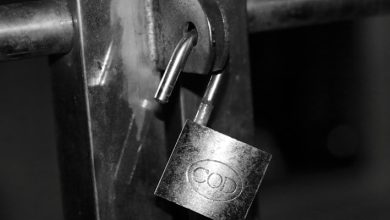How to Safely Use Decentralized Exchanges (DEXs)

- Understanding the basics of decentralized exchanges
- Benefits and drawbacks of using DEXs
- Tips for securely managing your private keys on DEX platforms
- Exploring the different types of decentralized exchange platforms
- Common security risks associated with DEXs and how to mitigate them
- Regulatory challenges and compliance considerations for DEX users
Understanding the basics of decentralized exchanges
Decentralized exchanges (DEXs) are a type of cryptocurrency exchange that operates without a central authority or intermediary. This means that users can trade directly with each other without the need for a trusted third party to facilitate transactions. Understanding the basics of decentralized exchanges is crucial for anyone looking to safely use them.
One of the key differences between DEXs and traditional exchanges is the way in which they handle user funds. On a DEX, users retain control of their funds at all times, as they are held in their own personal wallets rather than being deposited into a centralized exchange wallet. This provides a higher level of security, as users are not reliant on the exchange to protect their funds from hacking or theft.
Another important aspect of decentralized exchanges is the concept of liquidity. Unlike centralized exchanges, which often rely on market makers to provide liquidity, DEXs use automated market-making algorithms to facilitate trades. This means that users can trade directly with each other without having to wait for a third party to match their orders, resulting in faster and more efficient transactions.
It is also worth noting that decentralized exchanges typically offer a wider range of trading pairs than centralized exchanges. This is because anyone can create a new trading pair on a DEX, whereas centralized exchanges often have strict listing requirements. This increased flexibility can be beneficial for users looking to trade less popular or newly launched cryptocurrencies.
Overall, decentralized exchanges offer a number of advantages over their centralized counterparts, including increased security, faster transactions, and greater flexibility. By understanding the basics of how DEXs work, users can take full advantage of these benefits while minimizing the risks associated with trading cryptocurrencies.
Benefits and drawbacks of using DEXs
There are several benefits to using decentralized exchanges (DEXs) for trading cryptocurrencies. One of the main advantages is the enhanced security that DEXs offer. By allowing users to retain control of their funds and trade directly from their wallets, DEXs reduce the risk of hacks and theft that are common on centralized exchanges. Additionally, DEXs provide greater privacy for users since they do not require the same level of personal information as centralized exchanges.
Another benefit of using DEXs is the increased access to a wide range of cryptocurrencies. Unlike centralized exchanges that often have limited trading pairs, DEXs allow users to trade a variety of tokens directly from their wallets. This opens up more opportunities for traders to diversify their portfolios and take advantage of emerging projects in the crypto space.
However, there are also drawbacks to using DEXs that users should be aware of. One of the main challenges is the lower liquidity found on DEXs compared to centralized exchanges. This can result in higher slippage and trading fees, as well as slower execution times for trades. Additionally, the user experience on DEXs can be more complex and less intuitive for beginners, requiring a steeper learning curve to navigate the platform effectively.
Tips for securely managing your private keys on DEX platforms
When it comes to managing your private keys on decentralized exchanges (DEXs), security should be your top priority. Here are some tips to help you securely manage your private keys:
- 1. **Backup your private keys**: Make sure to regularly backup your private keys and store them in a secure location. This will ensure that you can always access your funds even if something happens to your primary device.
- 2. **Use hardware wallets**: Consider using hardware wallets to store your private keys offline. Hardware wallets are considered one of the most secure ways to protect your keys from online threats.
- 3. **Enable two-factor authentication**: Adding an extra layer of security like two-factor authentication can help prevent unauthorized access to your private keys.
- 4. **Avoid sharing your private keys**: Never share your private keys with anyone, including DEX platforms or support staff. Keep your keys private to maintain control over your funds.
- 5. **Regularly check for updates**: Stay up to date with the latest security patches and updates for your DEX platform to protect your private keys from potential vulnerabilities.
By following these tips, you can help ensure that your private keys remain secure while using DEX platforms. Remember, protecting your private keys is crucial to safeguarding your digital assets.
Exploring the different types of decentralized exchange platforms
Decentralized exchange platforms come in various types, each offering unique features and benefits to users. It’s essential to explore these different types to find the one that best suits your trading needs. Some of the most common types of decentralized exchange platforms include:
– Automated Market Makers (AMMs): AMMs are a type of decentralized exchange that uses algorithms to create liquidity pools for trading. Users can trade directly from these pools without the need for traditional order books. Popular AMM platforms include Uniswap and SushiSwap.
– Order Book Exchanges: Order book exchanges operate similarly to traditional centralized exchanges, matching buy and sell orders from users. However, unlike centralized exchanges, order book decentralized exchanges do not hold users’ funds. Examples of order book DEXs include 0x and Kyber Network.
– Token Swap Platforms: Token swap platforms allow users to exchange one cryptocurrency for another directly, without the need for an intermediary. These platforms typically offer a wide range of trading pairs and are popular among users looking to quickly swap between different tokens. Examples of token swap platforms include Bancor and AirSwap.
– Peer-to-Peer Exchanges: Peer-to-peer decentralized exchanges connect buyers and sellers directly, enabling them to trade without a centralized intermediary. Users can set their own prices and negotiate terms, providing greater flexibility and control over their trades. Bisq and LocalCryptos are examples of popular peer-to-peer DEXs.
By understanding the different types of decentralized exchange platforms available, you can choose the one that aligns with your trading preferences and risk tolerance. Whether you prefer the simplicity of AMMs, the familiarity of order book exchanges, the convenience of token swap platforms, or the control of peer-to-peer exchanges, there is a decentralized exchange out there for you.
Common security risks associated with DEXs and how to mitigate them
There are several common security risks associated with decentralized exchanges (DEXs) that users should be aware of in order to protect their assets. By understanding these risks and taking appropriate precautions, individuals can mitigate the potential vulnerabilities that exist when using DEXs.
One of the primary security risks associated with DEXs is the possibility of smart contract vulnerabilities. Smart contracts are the backbone of DEXs, and any flaws in these contracts can be exploited by malicious actors to steal funds. To mitigate this risk, users should only interact with DEXs that have undergone thorough security audits and have a proven track record of secure operations.
Another security risk to consider when using DEXs is the potential for phishing attacks. Phishing attacks involve tricking users into revealing their private keys or other sensitive information, which can then be used to access their funds. To protect against phishing attacks, users should always double-check the URL of the DEX they are using and never enter their private keys or seed phrases on any website other than the official DEX platform.
Additionally, users should be cautious when connecting their wallets to DEXs, as this can also expose them to security risks. By using hardware wallets or other secure wallet options, individuals can reduce the likelihood of their funds being compromised through wallet vulnerabilities or attacks.
It is important for users to stay informed about the latest security threats and best practices for using DEXs safely. By remaining vigilant and taking proactive steps to protect their assets, individuals can enjoy the benefits of decentralized exchanges without falling victim to common security risks.
Regulatory challenges and compliance considerations for DEX users
Using decentralized exchanges (DEXs) comes with its own set of regulatory challenges and compliance considerations that users need to be aware of. One key aspect to keep in mind is the lack of oversight and regulation in the DEX space, which can expose users to potential risks such as fraud, money laundering, and market manipulation.
When using DEXs, users should be cautious about the legality of trading certain assets, as some tokens may be considered securities and subject to regulations by financial authorities. It is important to conduct thorough research on the tokens being traded and to understand the regulatory environment in which the DEX operates.
Additionally, users should be aware of the potential risks associated with anonymity on DEX platforms. While privacy is a key feature of decentralized exchanges, it can also be exploited by malicious actors for illicit activities. Users should take precautions to protect their identities and ensure compliance with anti-money laundering (AML) and know your customer (KYC) regulations.
In order to mitigate regulatory risks when using DEXs, users should consider using decentralized wallet solutions that offer enhanced security and privacy features. By storing assets in non-custodial wallets, users can maintain control over their funds and reduce the risk of regulatory intervention.
Overall, while decentralized exchanges offer a unique and innovative way to trade digital assets, users must be mindful of the regulatory challenges and compliance considerations that come with this technology. By staying informed and taking proactive measures to protect themselves, users can safely navigate the world of decentralized finance.



